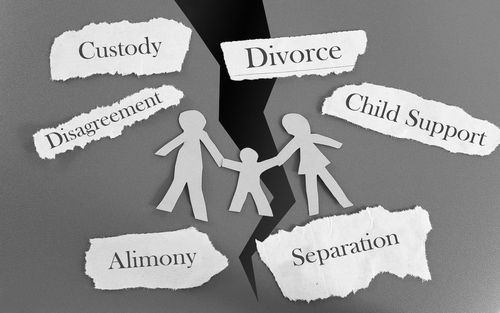Does It Benefit Me To Be The Person Filing For Divorce, Rather Than My Spouse?
The benefits aren’t typically extensive, but there are a few. Being the spouse to file a divorce petition means you have time to save money for expenses like an attorney and legal fees, prepare emotionally, get your documents and other information in order, find an attorney, and establish the timeline for the divorce. If the other person files first, you’ll have 30 days to answer and do all of the above, which may be difficult, depending on your case.
If the parties reside in different areas, the filing spouse can also choose the venue of the case, by filing in the County in which he or she resides. If you live in Moorhead and your spouse lives in Minneapolis, the convenience of filing the case first is substantial, because all the hearings will be in your city, instead of requiring you to drive three hours. Also, you’ll be able to get a local attorney; meaning you’ll easily be able to meet, transfer documents, etc. If your spouse files in Minneapolis, you’ll probably have to hire an attorney there, because the commute might make hiring a local attorney economically infeasible. If your spouse lives in a different state, the benefits of being the filing spouse go up considerably, in terms of convenience. But keep in mind: a Minnesota court can always grant you a divorce over an out-of-state spouse if you’ve lived in the state for 180 days, but may not have jurisdiction over assets, debts, or custody issues, depending on the circumstances.
One other potential advantage is being able to present your case first at trial. While there are pros and cons associated with presenting first, the petitioner gets to set the tone, frame the case for the court, make the first impression, and avoid the emotional distraction of hearing the other spouse’s presentation before his/her own.
If My Income Increases, Will My Child Support Obligation Increase As Well?
Yes, if the increase is “substantial.” There is a presumption that the higher income is substantial if it results in a child support obligation at least $75 and twenty percent higher than previously ordered. If not, it may be more difficult to modify the child support amount, but not impossible. The Court may still increase the support on a variety of bases; e.g. if the circumstances of the parties are such that the child support amount is now unreasonable or unfair. For help determining whether your change in income may result in an increased obligation, contact one of the attorneys below.
My Divorce Judgment Is Unfair, Can I Have It Changed?
Judgments are intended to be final, and it is not easy to avoid or alter them. However, in limited circumstances, and for a limited period, a person can request that the judgment is ‘reopened’ if, among other things, it’s based on mistake or fraud, or there is newly discovered evidence. The party must make the request to reopen within one year. A person can also seek “relief” from the Judgment on the same basis, and with the same time limitation. You can also request a new trial if there was an irregularity in the original trial, misconduct of the opposing party, accident, new evidence, or errors in the law during the trial. A request for a new trial must be made within 30 days. All of the foregoing applies to property and debt distribution, custody, parenting time, child and spousal support, and many others.
If you’re solely seeking to modify custody for reasons other than the above-mentioned, you will have to wait one year, unless certain circumstances have occurred. These circumstances include the agreement of the parties; stipulation to modification at the time of the judgment (if it’s also in the child’s best interests); integration of the child into the non-custodial parent’s home; and when the child’s present environment endangers the child’s physical or emotional health.
My Ex Isn’t Paying His/Her Share Of Our Children’s Medical Or Extra-Curricular Expenses. What Can I Do?
If the non-paying party is required to contribute to the child’s expenses, and he/she fails to do so, you can request that the court hold him/her in contempt. The court will hold a hearing, and if it determines that contempt has occurred, it can impose certain penalties. These can include a fine, imprisonment, and payment of your attorney fees and court costs. Just filing the action might motivate the other party to pay the medical or extra-curricular expenses. If not, the Court’s imposition of penalties might gain compliance.
Can I Stop Another Person From Contacting Me, Coming Near Me, Or Visiting My Home Or Work?
Yes. There are two types of restraining orders in Minnesota. The first is for “harassment” and can be filed against any person (regardless of your relationship to that person) for a single incident of assault, stalking, or dissemination of private sexual images; or for repeated incidents of intrusive or unwanted acts, words, or gestures, that have a substantial adverse effect on the safety, security, or privacy of another. A hearing is not necessary unless the court decides otherwise, or if the opposing party requests one. The court can even grant a temporary restraining order, which will remain in place until the hearing. The final order can remain in place for up to two years, or longer, under certain circumstances, and can restrain the other person from contacting you, visiting your home or work, or coming within a certain distance of yourself or certain locations.
The second type is an “order for protection” in domestic abuse cases. To be successful, you must 1) allege domestic abuse (physical harm, infliction of fear of imminent physical harm, terroristic threats, interference with an emergency call, or criminal sexual conduct), and 2) the person must be your spouse, former spouse, a parent or child, a blood relative, a co-parent, a person you currently reside with or have in the past, or a person with whom you’ve had a significant romantic interest. The court may issue an “ex parte” order (no hearing required) for up to two years, or may first hold a hearing, and can protect you by ordering the person to not contact you, stay a certain distance from you, your work or home, or even grant you custody of a joint child.
With either type of restraining order, a person can file on behalf of a child, if he/she is the child’s parent, guardian, or stepparent. Violation of either type of restraining order can constitute a criminal offense.
If you have questions regarding the topic of this article, or for help with these or other family law issues, please contact our Family Law Team at 701-297-2890, or send us an email below.
The information contained in this article and on this website is for informational purposes only and not for the purpose of providing legal advice. You should contact an attorney to obtain advice with respect to your particular set of facts.










